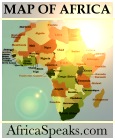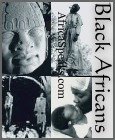BBC gets more money to step up Zimbabwe
Posted: Saturday, November 9, 2002Herald Reporter
THE British government has allocated more money to the BBC to continue its demonisation of Zimbabwe.
British Secretary for Foreign and Commonwealth Affairs Mr Jack Straw said his government recently increased funding for the BBC’s World Service by £48 million ($4 billion) over the period from 2003 to 2006 on top of an annual baseline of £211m ($17bn).
He was responding to a report of the British parliamentary foreign affairs committee, which recommended London to increase funding for the BBC to continue its propaganda against Harare.
The committee said the British government should ensure that the BBC World Service continues to have enough funds to maintain the quality and extent of its coverage in Zimbabwe and extend it further.
"The annual grant-in-aid to BBCWS’s currently stands at £200m ($16bn). Operational decisions on resource allocation, given BBCWS’s independence of government on editorial and programming matters, are for BBCWS on the basis of its spending bid and working within the framework of overall objectives agreed with the FCO.
"The FCO and BBCWS maintain constant contact over each other’s respective objectives and priorities," said Mr Straw.
He admitted that the British media was often inaccurate in covering Zimbabwe as it was biased in favour of white commercial farmers.
"The Government has gone to great lengths to explain its policy on Zimbabwe to the British media and Parliament. It will continue to do so. Regrettably, media reporting has often been inaccurate or focused unduly on the situation facing Zimbabwe’s commercial farmers."
Contacted for comment yesterday, a BBC spokesperson could only say: "The BBC strives to be impartial and balanced in all its reporting."
The Government has banned the BBC from entering the country to cover events here, saying it was biased and broadcasts falsehoods about Zimbabwe.
The British parliamentary committee also recommended London to pursue all appropriate means of supporting the work of independent journalists in Zimbabwe. Britain already funds the opposition Daily News.
In August the United States revealed that it was working with certain local journalists and some Sadc countries to topple President Mugabe and the Government.
Mr Straw also said British diplomatic missions were actively countering Zimbabwean propaganda about UK policy, confirming the meddling by the British High Commission in the internal affairs of Zimbabwe.
He ruled out the possibility of the United Nations imposing sanctions on Zimbabwe.
"UN sanctions against Zimbabwe are not currently a realistic option," said Mr Straw.
He was responding to the committee’s recommendation that London should seek support in the United Nations, G8 and elsewhere to persuade countries outside of the European Union to impose similar sanctions imposed by the EU.
Mr Straw admitted that the UK as a former colonial power had an obligation on the land issue in Zimbabwe. "The United Kingdom is under a particular obligation to assist, not primarily because white farmers with British forebears are under threat — although that is a matter of great and proper concern — but because as a former colonial power it still has a residual responsibility."
http://www.herald.co.zw/index.php?id=15957&pubdate=2002-11-09Printer friendly version
Send page by E-Mail

Previous Page | Zimbabwe Watch | Historical Views | Home
NOTICE: All articles are the copyright property of the writers. In accordance with Title 17 U.S.C., section 107, some material on this site is provided without permission from the copyright owner, only for purposes of criticism, comment, scholarship and research under the "fair use" provisions of federal copyright laws. Visit: http://www.law.cornell.edu/uscode/17/107.shtml for more details. If you wish to use copyrighted material from this site for purposes of your own that go beyond 'fair use', you must obtain permission from the copyright owner.










